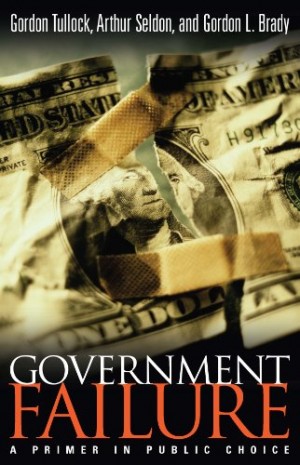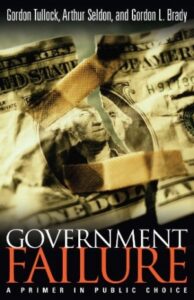
Michael Stackpole, a traditionally published author who was one of the early champions of self-publishing ebooks, has an interesting post analyzing the settlement agreed to by three of the Big Six publishers — Hachette, HarperCollins, and Simon & Schuster — involved in the alleged ebook price fixing flap. If he's right, the Department of Justice is going to be imposing more injustice than just preventing a little self-destructive collusive fixing of high prices. This is yet another among so many many many examples of the state stepping in to prevent something only to impose that very thing itself. Yes, it looks like the DoJ is going to prevent price fixing of one sort only to impose its own brand of price fixing. But hey, it's only a bad thing when non-state entities do it, right?
Here is Stackpole's breakdown of the settlement provisions:
- For a period of two years,
- Publishers will not be able to set a restricted retail price for their product.
- Retailers will be able to set their own price for an ebook, but they cannot discount the bookbelow their own discount. (In short, the retailer cannot sell ebooks at a loss.)
- Publishers cannot “retaliate” against retailers during this time.
- The “favored nation” status that prevented a publisher from selling at a lower price to one retailer over another is gone.
- The Agency Pricing discount of 30% off the top that retailers pay publishers can remain in place.
- There are compliance procedures being set in place (that I don't bother discussing) so the government can make sure that the publishers are complying with the agreement.
That's right. Provision #3 fixes an arbitrary minimum price —a price floor. Retailers like Amazon will not be allowed to sell ebooks below the price they pay publishers for them; they will not be allowed to sell at a loss. For two years. And apparently there is yet more intrusive bureaucracy being set up to monitor compliance with these new regulations for the ebook market. It's another shovel-ready Obama jobs program!
The federal government is also going to prevent publishers from requiring retailers sell their ebooks for a certain price. In other words, it bans the agency model. Now, I'm no fan of the agency model, and I think it's self-destructive for publishers to adopt it in order to screw their customers with high prices so that they can prop up their dead-tree book business model for a while longer. But I don't think they should be prevented by law from doing so.
Stabilization is Chaos: “Monetary policy all over the world has followed the advice of the stabilizers. It is high time that their influence, which has already done harm enough, should be overthrown.”
— F.A. Hayek, 1932
The federal government is also going to prevent publishers from retaliating against retailers for the prices they set. Also, no more contracts that stipulate publishers can't sell to other retailers at a lower price. In other words, the state is going to short circuit the market process by preventing publishers from putting any kind of meaningful pressure on retailers and vice versa. No jockeying for position in the ebook market. Forget letting consumers decide and the best business model win. The United States federal government prefers stasis — the maintenance of a status quo of its own making.
But wait, there's more. Stackpole does the math and argues that far from preventing publishers from fixing high prices for consumers, the settlement will actually disincentivize both publishers and retailers from setting lower prices:



